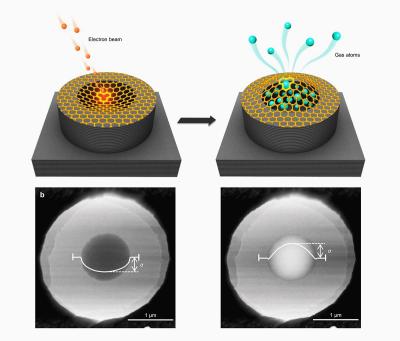Graphene helps track the nanomotion of bacteria
A team of researchers from TU Delft, led by dr. Farbod Alijani, recently managed to capture the low-level noise of a single bacterium using graphene.
Being able to pick up on the miniscule sounds of bacteria can help track if an antibiotics is working, or if the bacteria are resistant to the antibiotic. Alijani's team was originally looking into the fundamentals of the mechanics of graphene, but at a certain point they wondered what would happen if it comes into contact with a single biological object.
